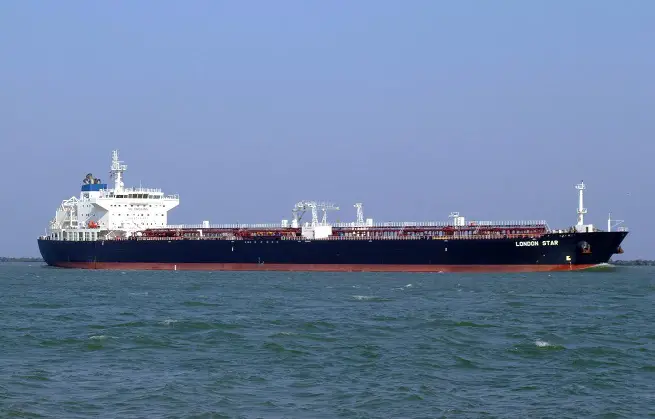The US Treasury’s Office of Foreign Assets Control (OFAC) has released guidance on its implementation of the oil price cap being imposed on Russia by the G7 group of nations.
US companies will be allowed to buy seaborne Russian oil so long as the oil comports with the price ceiling agreed to by the allied countries, according to a statement published on Friday.
The OFAC went on to say the US is banning “services related to the maritime transportation of… seaborne Russian oil” starting December 5, and services related to the transport of refined petroleum products as of February 5, 2023.
Any fuel bought at or below the price cap established by the, “coalition of countries including the G7 and the EU,” will be exempted from the ban. So long as the rules are adhered to, ships will be able to acquire insurance and refueling services.
Importers or refiners purchasing Russian oil below the price cap will have to provide evidence to shippers proving their compliance before acquiring services.
If any buyer purchases oil for more than the capped price, or knowingly provides false information, it may trigger legal probes and/or fines.
The document failed to cite any specific price cap level, but does note there will be additional guidance issued after the countries involved consult further.
The Group of Seven countries (US, Canada, UK, France, Germany, Italy and Japan) met in September, where they agreed to impose a price cap. The goal of the cap was to reduce Russia’s ability to profit from energy sales, without disrupting the total supply of oil, such as by banning all sales.
The EU met on Friday, seeking to impose a similar price cap, however all attempts to reach an agreement failed, with Hungarian Minister of Foreign Affairs Peter Szijjarto telling reporters, “Today there was no solution, there was only a political dispute, which served as a reference point for the European Commission.”
Russian Deputy Prime Minister Alexander Novak has derided the price cap as a, “complete absurdity,” noting Russia will never supply fuel to any nation which attempts to dictate a below-market price for the fuel’s purchase.
In addition, most analysts do not expect the price cap to have any effect, as the countries presently buying already-discounted oil from Russia, such as China and India, are doing so in violation of sanctions already imposed by the same parties seeking to impose the cap. Analysts note it seems improbable they will seek to impose the cap and both endanger their access to already discounted Russian fuels, and risk upsetting geo-political relations with the Russian Republic.
In addition, shipping services such as insurance and refueling can be provided by countries with little impetus to forgo the profits of supplying such services in order to honor the price cap for little or no gain.

